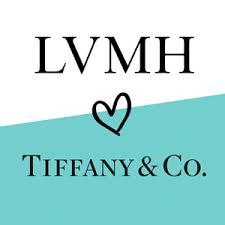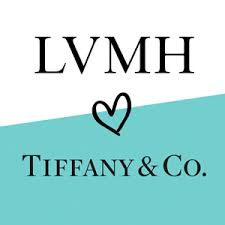
The iconic United States based jeweler Tiffany is set to be acquired by the French luxury goods maker Louis Vuitton owner LVMH for $16.2 billion. This is the biggest takeover in the history of the French firm and it is hoping that it would be able to bring the US firm to its former glory.
The jewelry and watch division, the smallest business division of LVMH in terms of volumes will get a boost by the acquisition. This division already owns Bulgari and Tag Heuer brands and the acquisition will help the division to further penetrate the market in this segment that is one of the fastest growing the luxury industry.
The bulk of earnings at LVMH, run by France’s richest man, Bernard Arnault, is accounted for the fashion and accessories brands including Christian Dior even though the growth in its jewelry business has been impressive in recent years.
“The acquisition of Tiffany will strengthen LVMH’s position in jewelry and further increase its presence in the United States,” LVMH and Tiffany said in a joint statement.
The shares of both the companies rose after the announcement.
The deal would “provide further support, resources and momentum,” said Tiffany CEO Alessandro Bogliolo.
The deal is expected to be closed by the middle of 2020, said the companies. An appeal to the shareholders to approve the deal has been made by the board of directors of Tiffany, the company said in the statement.
The price of $135 a share offered for Tiffany represented a 7.5 per cent premium over the company’s closing stock price on Friday and is more than 50 per cent more than the share price of the company that persisted before interest in the company was shown by LVMH.
One of the best-known brands in the jewelry industry, Tiffany was founded in 1837 in New York and is best known for its signature robin’s egg blue packaging. The company and brand featured in the movie “Breakfast at Tiffany’s” starring Audrey Hepburn.
Before making the announcement, the two companies had been holding negotiations for about five weeks since the first offer was made by LVMH in mid October for a deal worth $120 s share offer. However reports have claimed that the French company has been interested in Tiffany for four years.
Tiffany currently has more than 300 stores globally and last year the company made most of its revenues from its home market of the US. The company however has found it difficult to attract customers from the younger generation in recent years and faced tough competition from rivals such as Denmark’s Pandora A/S and Signet Jewelers that have come out with lower priced products.
At present the company is also coping with the trade war between the US and China as well as Chinese customers shifting spending in the US while focusing on spending more in the home market.
“Tiffany’s brand equity and the strength of the image of its iconic 1837 Blue Box are more valuable than the current financials suggest,” Jefferies analyst Flavio Cereda said in a note published just before the deal was confirmed. “LVMH can leverage off these to launch a more concerted ‘attack’ on the Asian millennial market.”
(Source:www.nytimes.com)
The jewelry and watch division, the smallest business division of LVMH in terms of volumes will get a boost by the acquisition. This division already owns Bulgari and Tag Heuer brands and the acquisition will help the division to further penetrate the market in this segment that is one of the fastest growing the luxury industry.
The bulk of earnings at LVMH, run by France’s richest man, Bernard Arnault, is accounted for the fashion and accessories brands including Christian Dior even though the growth in its jewelry business has been impressive in recent years.
“The acquisition of Tiffany will strengthen LVMH’s position in jewelry and further increase its presence in the United States,” LVMH and Tiffany said in a joint statement.
The shares of both the companies rose after the announcement.
The deal would “provide further support, resources and momentum,” said Tiffany CEO Alessandro Bogliolo.
The deal is expected to be closed by the middle of 2020, said the companies. An appeal to the shareholders to approve the deal has been made by the board of directors of Tiffany, the company said in the statement.
The price of $135 a share offered for Tiffany represented a 7.5 per cent premium over the company’s closing stock price on Friday and is more than 50 per cent more than the share price of the company that persisted before interest in the company was shown by LVMH.
One of the best-known brands in the jewelry industry, Tiffany was founded in 1837 in New York and is best known for its signature robin’s egg blue packaging. The company and brand featured in the movie “Breakfast at Tiffany’s” starring Audrey Hepburn.
Before making the announcement, the two companies had been holding negotiations for about five weeks since the first offer was made by LVMH in mid October for a deal worth $120 s share offer. However reports have claimed that the French company has been interested in Tiffany for four years.
Tiffany currently has more than 300 stores globally and last year the company made most of its revenues from its home market of the US. The company however has found it difficult to attract customers from the younger generation in recent years and faced tough competition from rivals such as Denmark’s Pandora A/S and Signet Jewelers that have come out with lower priced products.
At present the company is also coping with the trade war between the US and China as well as Chinese customers shifting spending in the US while focusing on spending more in the home market.
“Tiffany’s brand equity and the strength of the image of its iconic 1837 Blue Box are more valuable than the current financials suggest,” Jefferies analyst Flavio Cereda said in a note published just before the deal was confirmed. “LVMH can leverage off these to launch a more concerted ‘attack’ on the Asian millennial market.”
(Source:www.nytimes.com)














